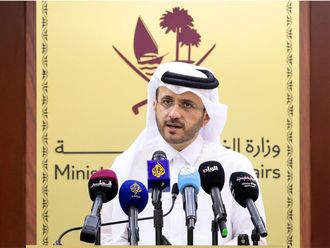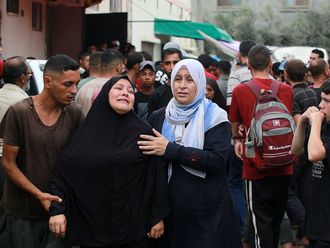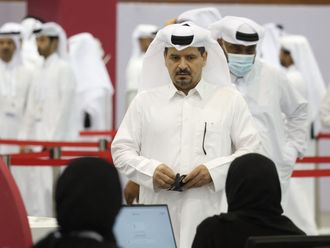
Manama: Germany has announced plans to work with Qatar to improve the country’s education system.
"New areas of cooperation will centre on higher education. We will be focusing on research activities," said Anne Ruth Herkes, the German ambassador, in Doha. "One of the major areas of research will be alternative energy. We will also be focusing on design, engineering and infrastructure.”
The ambassador, a graduate of the Vienna Diplomatic Academy, who was appointed in July 2010, stressed the need for a permanent location for the German School Doha to house an increasing number of students.
A large number of Germans moved to Doha as a result of growing bilateral trade relations and many of them work on the rail project.
"The number of Germans in Qatar is growing fast. The presence of around 1,750 Germans in Qatar right now represents a steep jump in their numbers, as compared to just a few hundred of them a few years ago," she was quoted by the Qatar Tribune as saying.
The German contribution to Qatar’s development will grow substantially in coming years, the ambassador said, adding that Deutsche Bhan, the German rail company that has undertaken the metro rail project in Qatar, will build 108 metro stations. "This is roughly equivalent to half the metro rail stations in Greater London.”
In November 2009, Deutsche Bhan signed a $25 billion (Dh91.82 billion) contract to build rail and underground lines in Qatar.
The metro network within Greater Doha is one of the three major sections of the Qatar railway project expected to be completed in phases over the next six years. The other two sections are the over-ground railways covering the whole of Qatar and linking it to the rest of the Gulf Cooperation (GCC) region and the cargo trains, Qatar Tribune reported on Tuesday.
The metro rail section of the project is expected to cover a total distance of 354 kilometres, with trains running at speeds of 80 to 160 kilometres per hour. The ground rail network will cover 345 kilometres and cross the entire country, with passenger electric trains running at between 220 and 350 kilometres per hour.
It’s planned that this network will be linked to the GCC railways by 2017.












